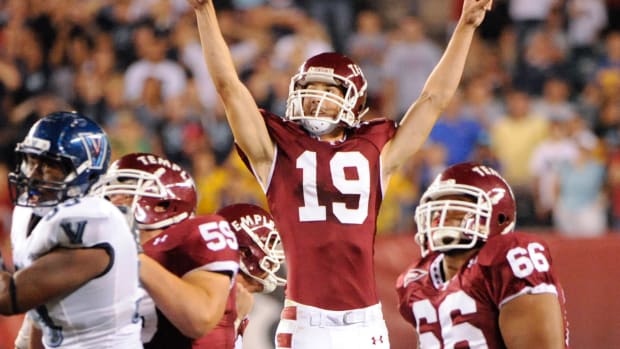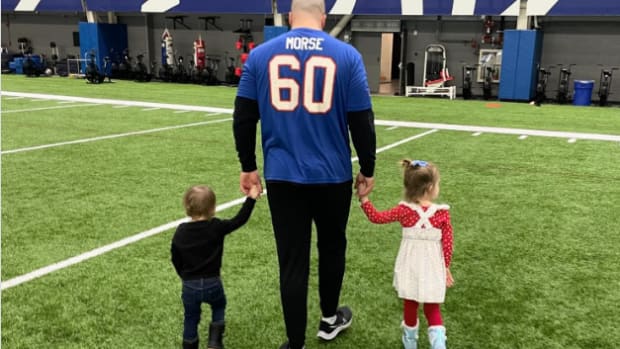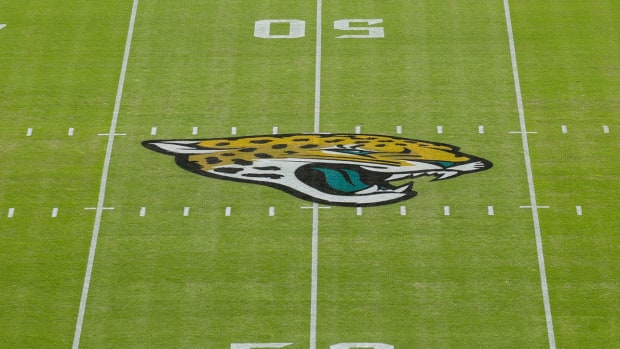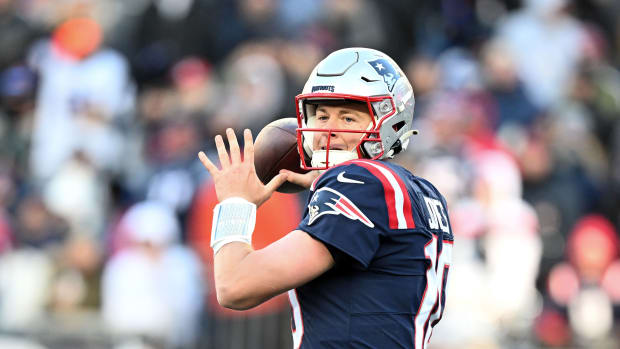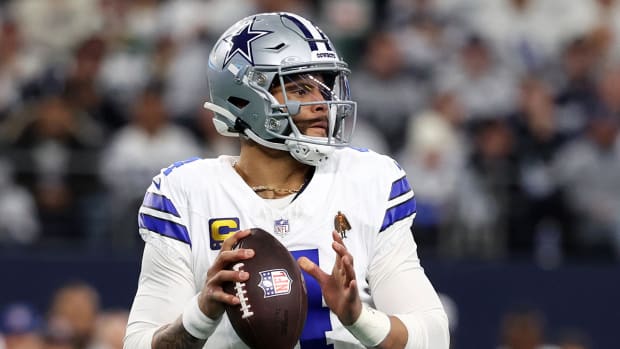Why Didn't the Jaguars Run the Ball vs. the Colts?
Two days after the Jacksonville Jaguars lost a crucial AFC South game to the Indianapolis Colts, a 33-13 blowout that was not even as close as the score would indicate, it is still a little surreal to see how exactly the Jaguars lost.
After all, the Jaguars have built their entire identity the last three seasons on being a tough, downhill running team that will punish you on offense and then fly to the ball on defense. The word 'grit' is found all throughout TIAA Bank Field, serving as a reminder to the team about the attitude they are meant to play with.
Jacksonville has been so committed to being a throwback team who centers their offense around the run game that they spent the No. 4 overall pick of the 2017 NFL Draft on running back Leonard Fourtnette; a pick that was panned by many but was made almost more so to make a statement than to make the best pick possible.
That is what made Sunday's loss to the Colts so strange. No, not the fact that Jacksonville lost, but how they lost. Leonard Fournette saw only eight carries, a career-low despite Fournette playing in several games in the past where he had to leave early due to injury. Even in those games, he got more rushes than he did on Sunday.
Nick Foles throwing the ball 47 times while Fournette gets only eight carries, with three of those coming in the second half despite the Jaguars being down only 10-7 at halftime, is not a recipe for success for this Jaguars team. Fournette also caught seven passes, but ultimately giving the player you built your offense and identity around only eight carries is malpractice.
Here are each of Fournette's carries vs. the Colts:
- Run No. 1: 10-yard gain.
- Run No. 2: four-yard gain.
- Run No. 3: zero-yard gain.
- Run No. 4: eight-yard gain.
- Run No. 5: two-yard gain.
- Run No. 6: two-yard loss.
- Run No. 7: zero-yard gain.
- Run No. 8: one-yard gain.
Jacksonville set a franchise record in lowest rushing attempt totals on Sunday with nine after rookie Ryquell Armstead had one early carry. The Jaguars didn't have a single rushing attempt after the 10:00 mark in the third quarter.
So it is not like Fournette wasn't getting the majority of carries. The team just got away from running it completely, and instead relied on the arm of Foles to move the ball, which did not result in many positives.
“I’m not going to sit here and make excuses," Jaguars head coach Doug Marrone said after the game. "I mean we had an injury and that took out some of the things we wanted to do run-wise, but at the end of the day we just felt good and comfortable throwing the football and it didn’t work.”
The injury Marrone was referring to was to tight end Seth DeValve, who missed Sunday's game with an oblique injury and has served as a de facto full back in offensive coordinator John DeFilippo's scheme. But missing DeValve, a career reserve player, should not be the reason Fournette gets only eight carries in a game that was a one-to-two possession game for much of Sunday.
When asked Monday about the radical pass-to-run ratio, Marrone shouldered the blame. He said when the Jaguars go through a game like the Colts game, where they completely ignore Fournette for four quarters despite him having a career year in 2019, it falls on him.
“That probably comes back to my end, that I’ve got to do a good job," Marrone said."
So, why exactly did Marrone have the team go away from the run so early in the game? He explained that it was because of what he was seeing the Colts' offense doing.
"I was looking back about my mindset on the game, and I can only explain what my thought process is, and where I made a mistake, or where I make mistakes," Marrone said Monday.
"So, when we threw the interception in the second, we still were only down 10-7. I know in my mind I wanted to stick with our game plan and come out in the third quarter and get it going offensively, get Leonard those opportunities. And [Indianapolis] came out in the second half, they had that big drive [and] it took a bunch of time up. And I think that’s where I wish I would have been like, ‘Hey, let’s stick with the plan, it’s still two scores,’ and that was my mistake. That was a big mistake by me."
Marrone explained that seeing the Colts drive down the field with ease, making it a two-possession game, is what made him want to put the game in Foles' hands. That was a mistake, as Marrone himself pointed out several times.
"It becomes a two-score game and I just felt the way that they were running the ball I thought we needed to score points in a quicker fashion and I think that’s what led to the increased pass attempts, so that’s on me as the head coach," Marrone said.
"I know that we’re frustrated, I know Leonard’s frustrated, the [O]-Line. He wants to make plays and help us win the game. And again, I think that was the mindset, and I was wrong, and I made a mistake.”
So, the Jaguars didn't use their offensive centerpiece on Sunday because of how well the other team ran the ball. The Jaguars needed offense quickly on Sunday, but they are not built to throw it 47 times and run it only nine. It appears now that Marrone is cognizant of the mistake he made, and it is worth monitoring if it happens again.
